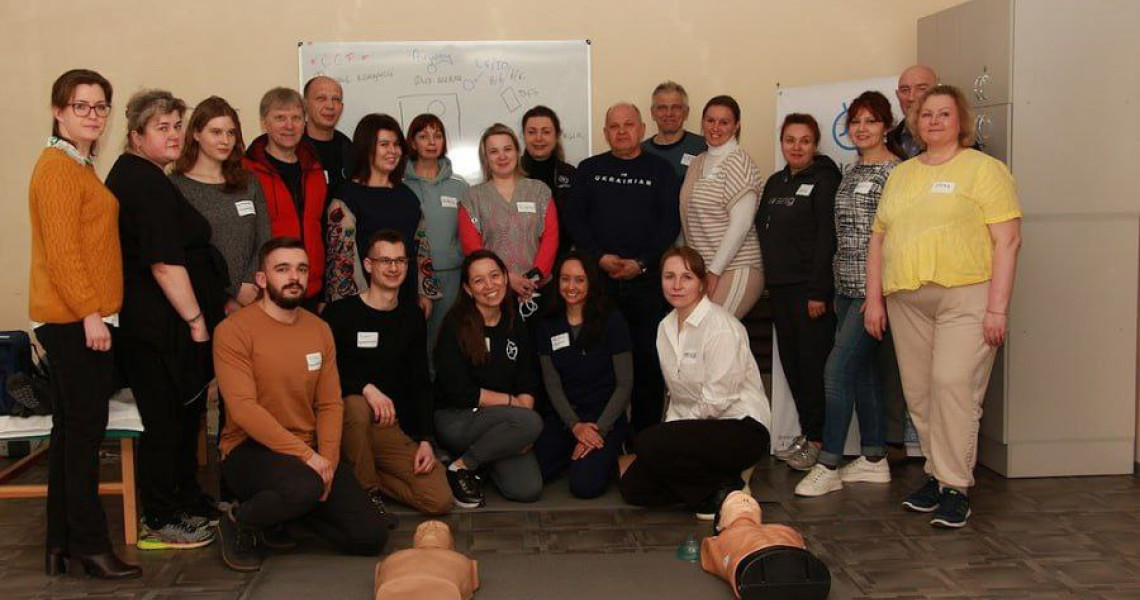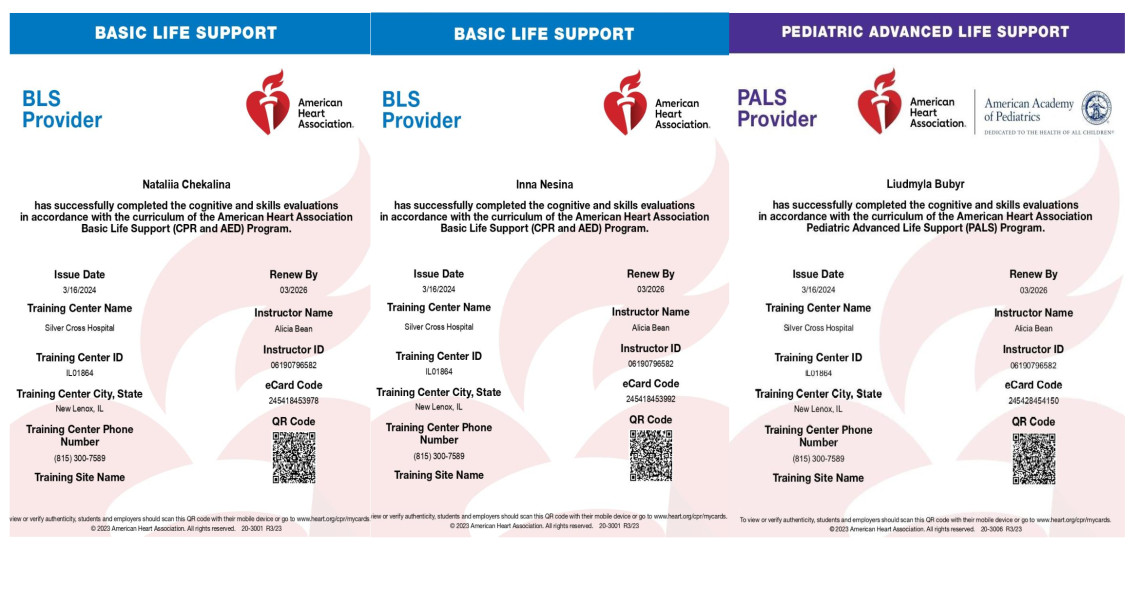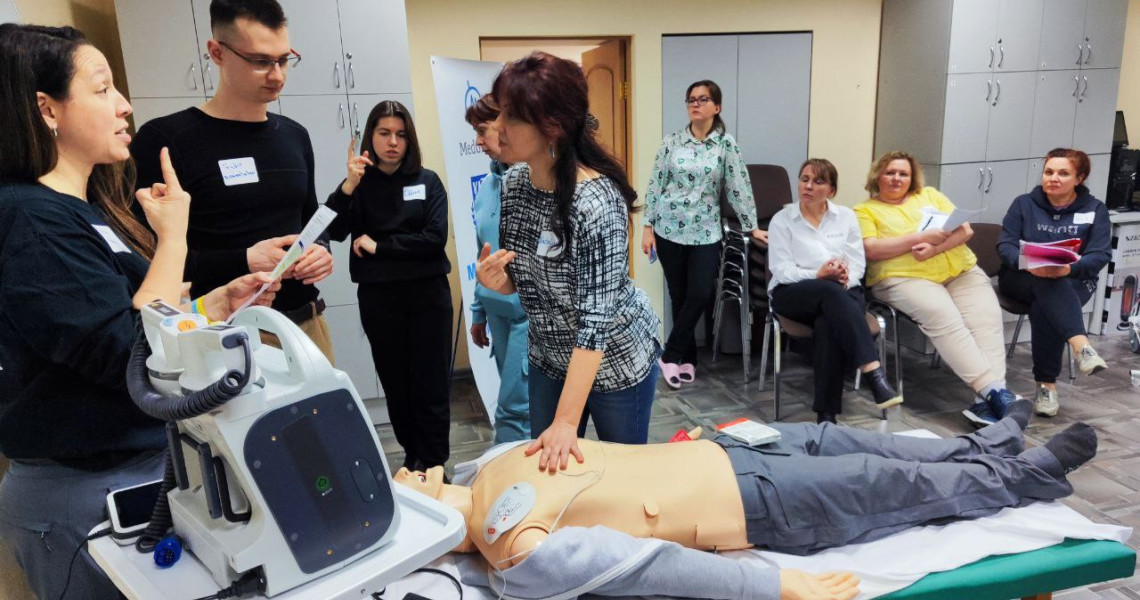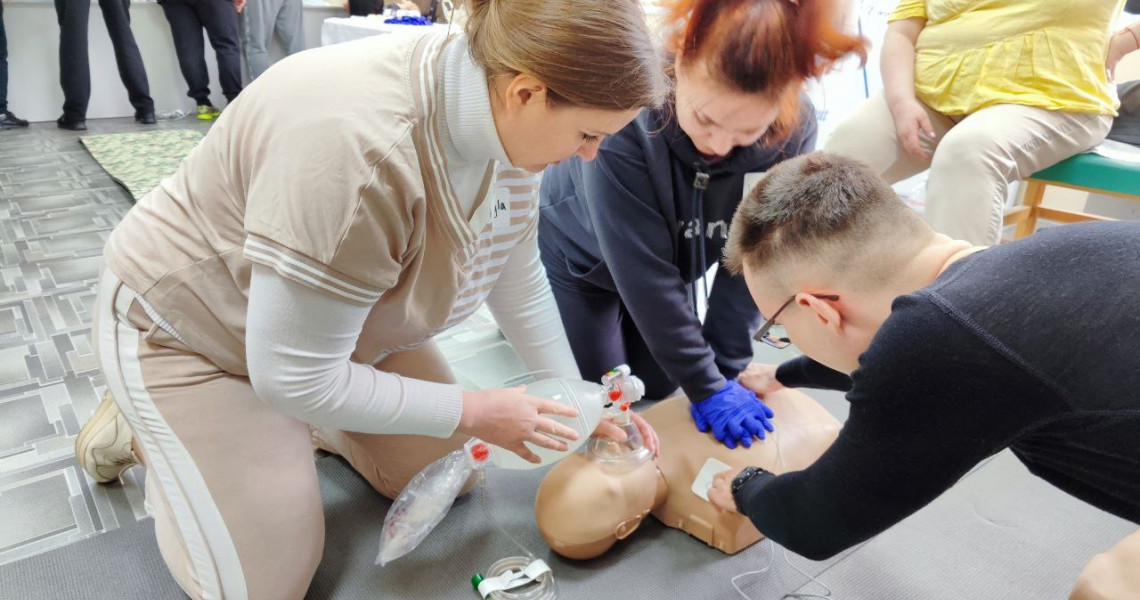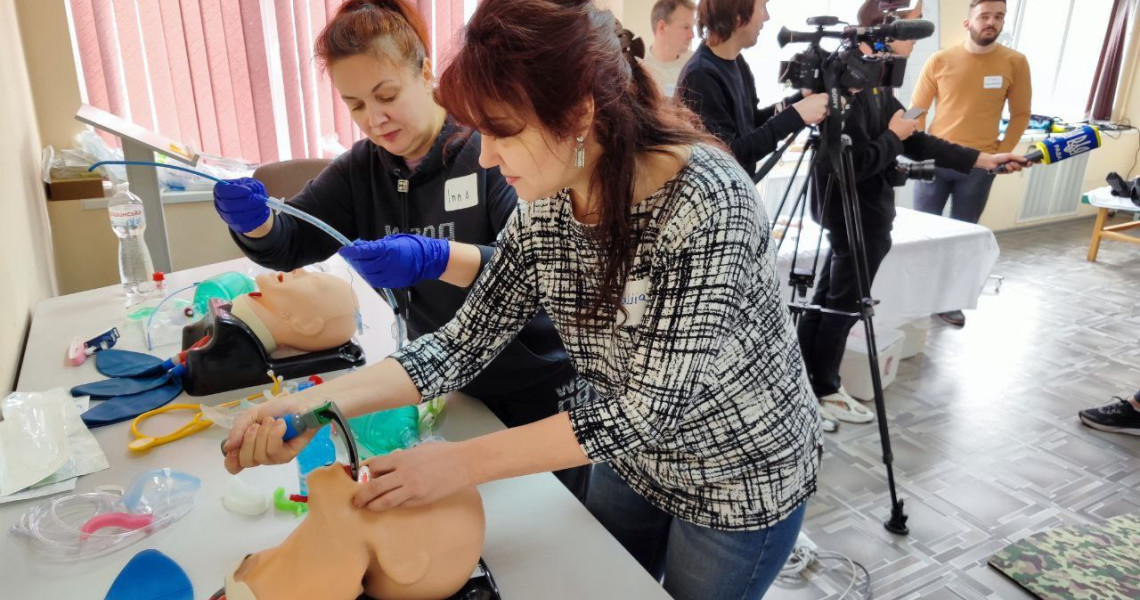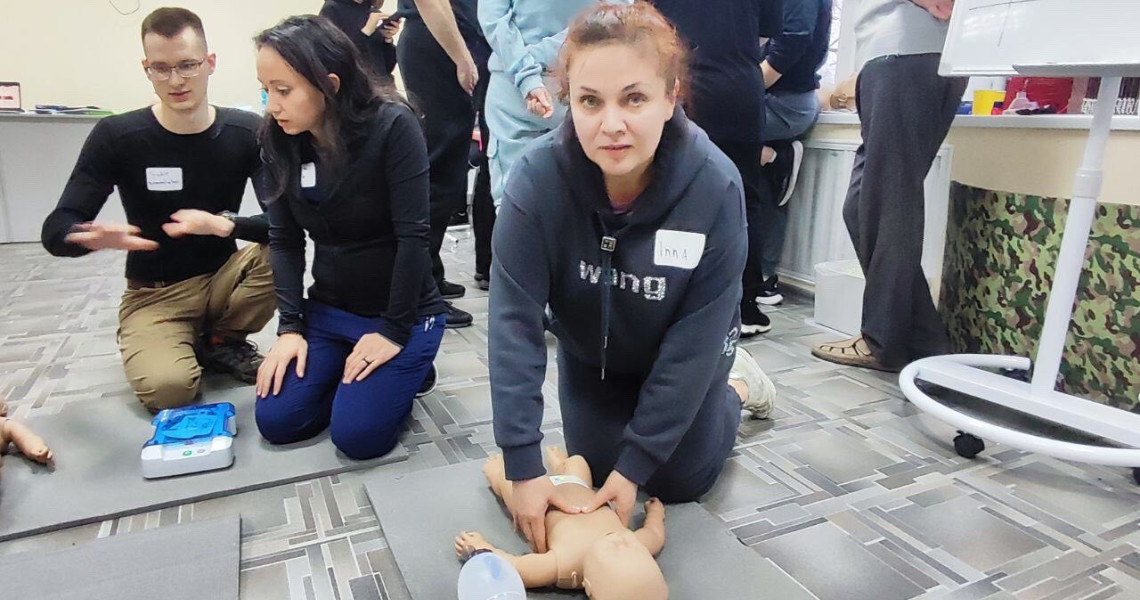Звання сертифікованих інструкторів Американської асоціації серця (American Heart Association, AHA) рівнів Basic Life Support (BLS) або Advanced Cardiovascular Life Support (ACLS), а також, за напрямом - Pediatric Advanced Life Support (PALS) отримали професорка кафедри пропедевтики внутрішньої медицини Наталія Чекаліна та співробітники кафедри педіатрії № 2 - доцент Інна Несіна й асистентка Людмила Бубир.
За сприяння адміністрації університету та завідувачів відповідних кафедр науково-педагогічні працівники пройшли міжнародні сертифіковані курси, які були організовані за ініціативою Міністерства охорони здоров’я України в НУОЗ України імені П. Л. Шупика в рамках реалізації проєкту від Американської Кардіологічної Асоціації (American Heart Association) з метою збільшення кількості міжнародних сертифікованих інструкторів, які працюють у вищих навчальних закладах.
Курс реалізувався для понад 100 представників з 15 державних закладів вищої медичної освіти України за підтримки благодійної неурядової організації «MedGlobal» і починався з теоретичної частини – лекцій в онлайн -форматі, які представляли міжнародні інструктори. Кожний блок інформації завершувався 2-х -3-х годинним іспитом.
Учасники курсів, які успішно склали іспити з базової та розширеної серцево-легеневої реанімації у дорослих та дітей, мали можливість також, пройти практичний тренінг з надання невідкладної медичної допомоги очно на базі НУОЗ України імені П. Л. Шупика під супроводом американських колег, які допомагали відпрацювати алгоритми діагностики загрозливих для життя станів, навички ефективної компресії грудної клітки, штучної вентиляції легень, використання автоматичного зовнішнього дефбрилятора.
Висловлюємо глибоку подяку організаторам та адміністрації ПДМУ за сприяння в підвищенні кваліфікації, можливість взяти участь в реалізації даного проєкту, розширення міжнародної співпраці, набуття цінного досвіду, доступ до сучасного симуляційного обладнання! Це дозволило підвищити рівень володіння практичними навичками, впровадити сучасні освітні технології з метою забезпечення якісної медичної допомоги населенню.
International Collaboration: PSMU Scholars Receive American Heart Association Instructor Certificates
Professor Nataliia Chekalina from the Department of Propaedeutics of Internal Medicine and the faculty members of the Department of Pediatrics No. 2, Associate Professor Inna Nesina and Assistant Liudmyla Bubyr, have received certifications as instructors from the American Heart Association (AHA) in Basic Life Support (BLS) or Advanced Cardiovascular Life Support (ACLS), and Pediatric Advanced Life Support (PALS).
With support from the university administration and department heads, the faculty members completed international certified courses. These courses were organized by the Ministry of Health of Ukraine at the Shupyk National Healthcare University of Ukraine, under the American Heart Association project aimed at increasing the number of internationally certified instructors in higher education institutions.
The course was attended by over 100 representatives from 15 state medical education institutions in Ukraine, supported by the charitable NGO "MedGlobal." It began with theoretical online lectures presented by international instructors, with each block of information concluding with a 2–3-hour exam.
Participants who successfully passed the exams in basic and advanced adult and pediatric cardiopulmonary resuscitation also had the opportunity to attend practical training sessions on emergency medical care at the Shupyk National Healthcare University of Ukraine. These sessions were conducted under the guidance of American colleagues, who helped refine skills in diagnosing life-threatening conditions, effective chest compressions, artificial lung ventilation, and the use of automated external defibrillators.
We express our deep gratitude to the organizers and the administration of PSMU for their support in enhancing expertise, providing the opportunity to participate in this project, expanding international cooperation, gaining valuable experience, and access to modern simulation equipment. This has allowed us to improve our practical skills, implement modern educational technologies, and ensure high-quality medical care for the population.






